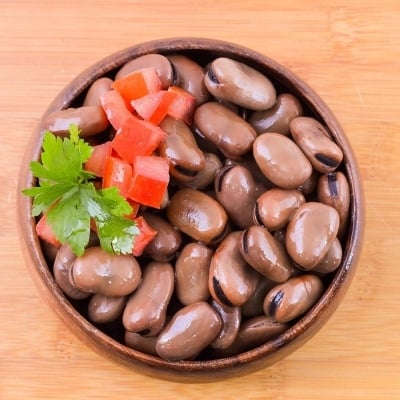Les fèves sont un plat populaire de base dans de nombreux pays arabes, notamment au petit-déjeuner. Elles sont riches en protéines végétales, fibres et minéraux bénéfiques, ce qui en fait un choix sain pour beaucoup.
Cependant, certaines personnes s’interrogent sur l’effet des fèves sur la digestion, notamment si leur consommation provoque de la constipation. Alors que certains se plaignent de ballonnements ou de troubles du transit après en avoir mangé, d’autres affirment qu’elles aident à réguler la digestion. Le débat sur l’impact des fèves sur le transit intestinal reste ouvert, et nous l’examinerons en détail ci-dessous.
Les fèves sont riches en fibres alimentaires qui aident à améliorer le transit intestinal, ce qui en fait dans certains cas un facteur aidant à prévenir la constipation. Cependant, paradoxalement, ces mêmes fibres peuvent provoquer des ballonnements ou une augmentation des gaz chez certaines personnes, surtout si le système digestif n’est pas habitué à consommer fréquemment des légumineuses.
Par conséquent, l’effet des fèves varie d’une personne à l’autre ; elles peuvent agir comme un laxatif pour certains, tandis qu’elles peuvent ralentir la digestion ou provoquer des troubles chez d’autres.
Problèmes potentiels :
- Troubles digestifs : tels que ballonnements, gaz et distension abdominale dus à la difficulté de digérer certains glucides présents dans les fèves.
- Réactions allergiques : chez les personnes allergiques aux légumineuses.
- Problèmes chez les patients atteints de favisme (déficit en G6PD) : la consommation peut aggraver l’anémie hémolytique.
- Effets sur l’humeur : une consommation excessive peut provoquer une carence en vitamine B6, ce qui peut affecter la santé mentale.
- Augmentation des calories et des graisses : surtout si consommées sous forme de falafel frit en grande quantité.
- Gaz et ballonnements dus à la fermentation des fibres dans les intestins.
- Problèmes digestifs en cas de consommation en grande quantité d’un coup.
- Réactions allergiques chez certaines personnes.
- Possibilité d’affecter l’absorption de certains nutriments en cas de consommation excessive sans diversification alimentaire.
Les légumineuses en général, y compris les fèves et les falafels, contiennent des fibres et des glucides complexes qui peuvent être difficiles à digérer pour les patients atteints du syndrome du côlon irritable, ce qui peut augmenter les crampes, les gaz ou même la diarrhée dans certains cas.
Symptômes courants :
Les fèves sont riches en potassium et en phosphore, deux éléments importants pour le corps, mais leur consommation en grande quantité peut peser sur les reins, surtout chez les patients souffrant d’insuffisance rénale ou de problèmes rénaux chroniques.
Certainement, consommées avec modération par des personnes ne souffrant pas de maladies contre-indiquant leur consommation, les fèves sont une excellente source de protéines végétales, fibres, vitamines et minéraux tels que le fer et le magnésium. Elles aident également à la satiété prolongée et soutiennent la santé du cœur et des os.
Oui, il est connu que les fèves peuvent provoquer des gaz chez certaines personnes en raison de leur teneur en sucres complexes difficiles à digérer complètement par l’intestin grêle, qui passent alors au côlon où ils sont fermentés par des bactéries, produisant des gaz et des ballonnements.












Recommended for you
مدينة المعارض تنجز نحو 80% من استعداداتها لانطلاق معرض دمشق الدولي
طالب الرفاعى يؤرخ لتراث الفن الكويتى فى "دوخى.. تقاسيم الصَبا"
تقديم طلبات القبول الموحد الثلاثاء و640 طالبا سيتم قبولهم في الطب
البريد المصري: لدينا أكثر من 10 ملايين عميل في حساب التوفير.. ونوفر عوائد يومية وشهرية وسنوية
سمو الشيخ عيسى بن سلمان بن حمد آل خليفة يستقبل سفير الولايات المتحدة الأمريكية لدى مملكة البحرين
الجغبير: القطاع الصناعي يقود النمو الاقتصادي